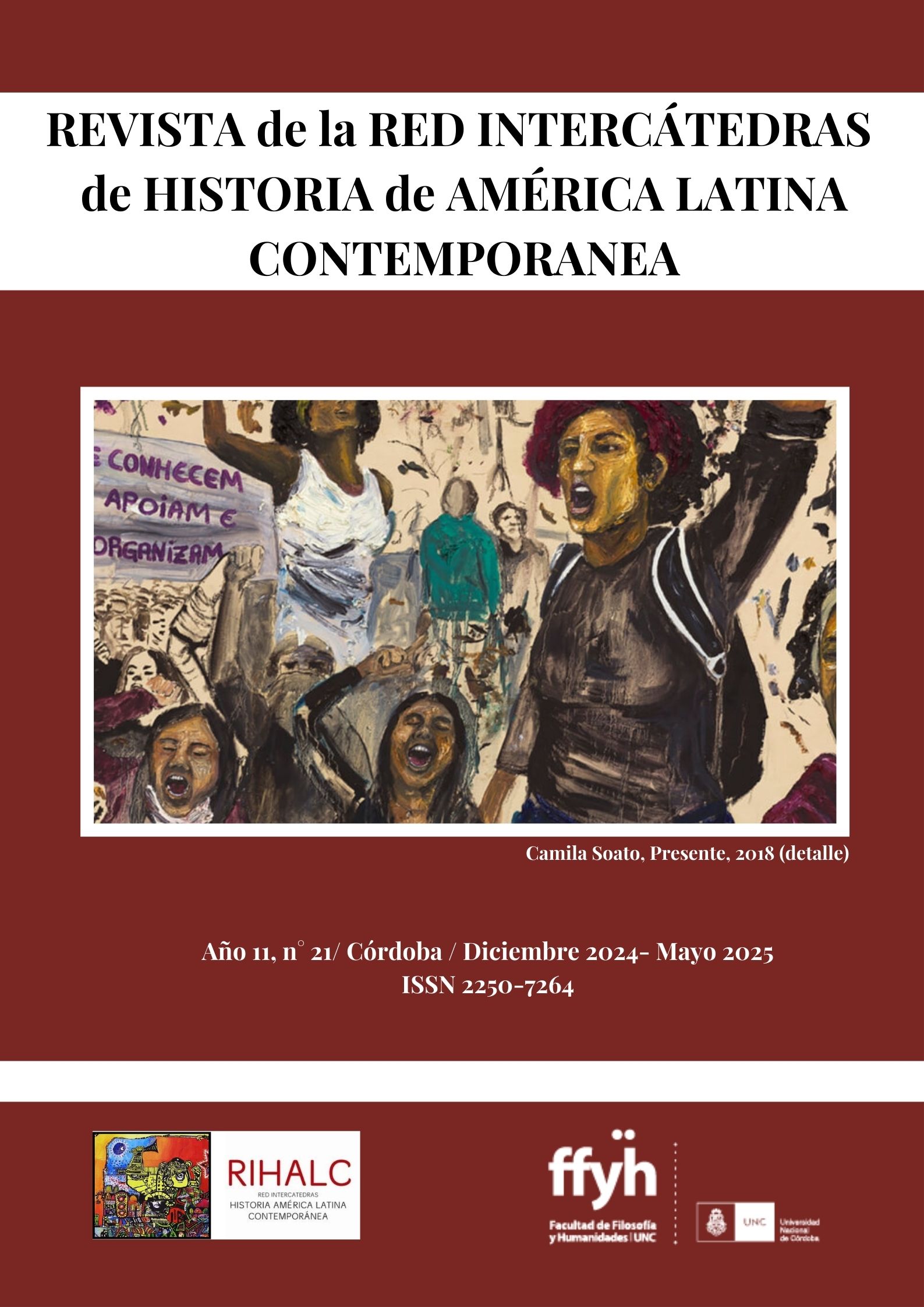A revisiting of the independence revolutions as preventive revolutions: effects of “disobedience and equality” in South America at the late 18th century
Keywords:
Preventive revolutions, Social conflicts,, Subaltern sectorsAbstract
In the critical juncture that is located between 1780 and 1795, a considerable number of social conflicts occurred in a territorial space that covered South America (regions of the Captaincies of Chile and Venezuela, the viceroyalty of Peru, New Granada and the Río de La Plata) and the Caribbean (the French colony of Saint Domingue (Haiti), thus a plurality of conflicts presented challenges to the colonial order by subordinate social sectors. Two ideas were triggers for the present communication, one that challenges the historiographic tendency of think of the social movements of the late 18th century not as mere precursors of independence, nor as uprisings against and in response to the eighteenth-century reforms implemented in the colony of La Otra, which were movements that expressed the starting point of a cycle of. revolts against domination and the colonial system that broke out in the situation of 1780-1795, but whose revolutionary potential would be occluded precisely by the Creole/peninsular sectors in the political revolutions of independence and in the institutionality of the new postcolonial order. The revolutions of independence were expressed as preventive acts against, on the one hand, the potential Spanish liberal current and, on the other, those exploited classes capable of subverting the order, not with a spontaneous or unforeseen action but from a collective action and with awareness of their capacity for action. In any case, the Creole revolution was primarily a disciplinary act, disciplining the subaltern rebellion.
References
Ansaldi, Waldo y Giordano, Verónica (2012): América Latina. La construcción del orden, Ariel, Buenos Aires.
Carrera Damas, Germán (1986): Venezuela: proyecto nacional y poder social, Crítica, Barcelona.
Chaunu, Pierre (1964): Historia de América Latina, EUDEBA, Buenos aires.
Díaz Jaramillo, José (2011): Alborotados, sediciosos y amotinados: tres momentos en la construcción de una prosa contrainsurgente sobre el levantamiento comunero de 1781, Memoria y Sociedad, N° 30, pp. 71-84.
Giletta, Carina (2021): Conflictos de fines del siglo XVIII en la América del Sur: desobediencia, rebeldía e igualación, ponencia presentada en Congreso Internacional Virtual 21. Un Año, dos conmemoraciones, diversas Historias de América, 1521-1821, Universidad de Cádiz.
Jocelyn-Holt Letelier, Alfredo (1999): La independencia de Chile. Tradición, modernización y mito, Santiago, Planeta/Ariel.
Linebaugh, Peter y Redike, Marcus (2005): La hidra de la revolución. Marineros, esclavos y campesinos en la historia oculta del atlántico, Crítica, Barcelona.
Lucena Salmoral, Manuel (1980-81): Los movimientos antirreformistas en Surámerica: 1777-1781. De Túpac Amaru a los comuneros, Anales de la Universidad de Murcia. Letras, Vol. 39, Nº 2-3-4, pp. 5-34.
Lucena Salmoral, Manuel (1982): El memorial de Don Salvador Plata, los comuneros y los movimientos antireformistas, Biblioteca virtual Cervantes https://www.cervantesvirtual.com/obra/el-memorial-de-don-salvador-plata-los-comunerosy-los-movimientos-antirreformistas-1166756/
Lynch, John. (1989): Las revoluciones hispanoamericanas 1808-1826, Ariel, Barcelona.
Martínez Covaleda, Héctor (2014): La Revolución de 1781. Campesinos, tejedores y la rent seeking en la Nueva Granada, T.D., Universitá Pompeu Fabra, Barcelona.
Modonesi, Massimo (2010): Subalternidad, antagonismo, autonomía. Marxismo y subjetivación política, CLACSO/Prometeo libros, Buenos Aires.
Palacios Marco y Safford Frank (2011): Colombia. País fragmentado, sociedad dividida, Ediciones Uniandes, Bogotá.
Plata Quezada, William Elvis, (2011): Religión y movimiento social: la Cédula del común y la insurrección de los Comuneros, Theologica xaveriana, Vol. 61, N° 172, pp. 473-508.
Phelan, John (2009): El Pueblo y el Rey. La Revolución Comunera en Colombia, 1781, Editorial Universidad del Rosario, Colombia.
Peña Aguilera, Mario (1983): Los Comuneros: de los tumultos a la organización de las Masas. Primera fase, Anuario Colombiano de Historia Social y de la Cultura, Vol.11, Universidad Nacional de Colombia, pp.89-127.
Skocpol, Theda (1979): States and the revolutions: a comparative analysis of France, Russia and China, Cambridge University Press, Cambridge.
Tilly, Charles (1995): Las revoluciones europeas, 1492-1992, Crítica, Barcelona.
Zeuske, Michael (2011): ―Una revolución con esclavos y con Bolívar. Un ensayo de interpretación, Memorias‖, Revista Digital de Historia y Arqueología desde el Caribe, N°14, pp. 5-47.
Downloads
Published
Issue
Section
License

This work is licensed under a Creative Commons Attribution-NonCommercial-NoDerivatives 4.0 International License.
Aquellos autores/as que tengan publicaciones con esta revista, aceptan los términos siguientes:
- Los autores/as conservarán sus derechos de autor y garantizarán a la revista el derecho de primera publicación de su obra, el cuál estará simultáneamente sujeto a la Licencia de reconocimiento de Creative Commons que permite la libre distribución con mención de su(s) creadores, no permite el uso comercial ni las obras derivadas. Los autores, al enviar el artículo, acuerdan publicarlo bajo esta licencia..
- Los autores/as podrán adoptar otros acuerdos de licencia no exclusiva de distribución de la versión de la obra publicada (p. ej.: depositarla en un archivo telemático institucional o publicarla en un volumen monográfico) siempre que se indique la publicación inicial en esta revista.
- Se permite y recomienda a los autores/as difundir su obra a través de Internet (p. ej.: en archivos telemáticos institucionales o en su página web) después del proceso de publicación.



